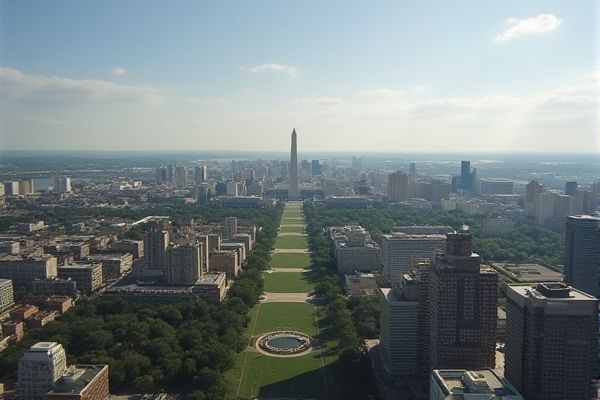
Local laws and regulations in Washington: Minimum wage requirements. Tenant rights and regulations. Legal recreational marijuana laws. Vehicle emissions standards. Business licensing requirements. State tax obligations. Local noise ordinances. Firearm possession laws. Public smoking restrictions. Building and zoning codes.
Minimum wage requirements
In Washington State, the minimum wage will increase to $16.28 per hour starting January 1, 2024, while younger workers aged 14 or 15 will earn 85% of this rate. The city of Seattle maintains its own distinct minimum wage laws, requiring businesses with 501 or more employees to pay $19.97 per hour. For businesses with 500 or fewer employees, the wage can be $17.25 per hour if certain criteria are satisfied, or otherwise, they must adhere to the $19.97 rate. To understand more about these wage structures and their implications, consider visiting the Guide to Washington Minimum Wage.
Tenant rights and regulations
In Washington State, tenant rights are protected under the Residential Landlord-Tenant Act, which mandates that landlords maintain habitable and safe rental properties, adhere to specific repair timelines, provide adequate notice for rent increases, and comply with anti-discrimination laws. Tenants have the right to challenge unlawful rent increases, seek repairs within defined timeframes, and file complaints against discrimination or wrongful eviction. For a comprehensive understanding of these regulations, visit the Washington State Landlord-Tenant Law Overview provided by Avail for detailed information and guidance.
Legal recreational marijuana laws
In Washington, recreational marijuana is legal for adults 21 and older, allowing them to possess up to 1 ounce of marijuana, 16 ounces of marijuana-infused products in solid form, or 72 ounces in liquid form. Marijuana must be purchased from state-licensed retail stores and consumed on private property, as public consumption is a civil infraction. The Washington State Liquor and Cannabis Board regulates all marijuana-related activities.
Vehicle emissions standards
Washington has adopted stringent vehicle emissions standards, including the Zero-Emission Vehicle (ZEV) program and the Advanced Clean Trucks (ACT) rule, to reduce greenhouse gas emissions and air pollution. These standards, aligned with California's regulations, require increasing percentages of new vehicles sold to be zero-emission, with a goal of 100% of new passenger vehicles being ZEVs by 2035. You can learn more about these initiatives and their impact on the environment by visiting the Washington State Department of Ecology website.
Business licensing requirements
In Washington State, all businesses must obtain a state business license, and many also need local licenses from the city or county where they operate, with fees and requirements varying by locality. Additionally, businesses may need professional or occupational licenses and comply with specific regulations depending on their activities. For more detailed information, you can visit the Washington State Business License Guide which offers comprehensive insights on the licensing requirements necessary for seamless business operations.
State tax obligations
In Washington, there is no state personal income tax, but the state imposes a 7% capital gains tax on long-term capital assets exceeding $250,000. The state sales tax rate is 6.5%, with localities adding up to 2.88%, and there is an estate tax on estates over $2.193 million, ranging from 10% to 20%. For more detailed information on taxes in Washington, visit the State-by-State Guide to Taxes on Kiplinger.
Local noise ordinances
In Puyallup, Washington, local noise ordinances play a crucial role in maintaining community peace by prohibiting public nuisance noises. There are specific exemptions in place for activities such as emergency equipment operations, officially sanctioned events, and construction sites that operate outside the hours of 10:00 p.m. to 7:00 a.m. Enforcement of these ordinances is primarily complaint-based, with distinct offenses defined for each 24-hour period of violation. Learn more about these regulations on the Puyallup Noise Ordinances Website, where detailed guidelines ensure both residents and businesses understand and comply with local noise control measures.
Firearm possession laws
In Washington State, firearm possession is regulated by laws that prohibit certain types of firearms, such as machine guns and short-barreled shotguns, and impose penalties for unlawful possession, including up to ten years in prison for certain offenses. Additionally, carrying a concealed firearm requires a concealed pistol license, and there are specific restrictions and requirements for the purchase, sale, and open carry of firearms. For detailed information on criminal offenses related to firearms, consult the comprehensive guidelines available on Washington State Laws. Understanding these regulations is crucial for ensuring responsible firearm ownership and avoiding significant legal consequences in the state.
Public smoking restrictions
In Washington State, smoking and vaping are prohibited in all public places and workplaces, including indoor areas like schools, stores, restaurants, and public transportation, with a requirement to maintain a 25-foot distance from entrances, exits, windows, and air intakes to prevent smoke from entering buildings. Local health departments can adopt additional regulations to enforce these laws and extend restrictions to outdoor public areas like parks and playgrounds. For more detailed information, you can visit the King County Public Health website, which offers comprehensive guidelines and updates on these regulations.
Building and zoning codes
In Washington, particularly in King County, building and zoning codes are managed differently for incorporated and unincorporated areas. King County has specific zoning codes such as RA-10 for Rural Areas and R-1 to R-48 for Residential areas, while each city within the county has its own jurisdiction over zoning and land use. The state also adheres to the Washington State Building Code, which includes various international codes with state amendments, effective as of March 15, 2024.
